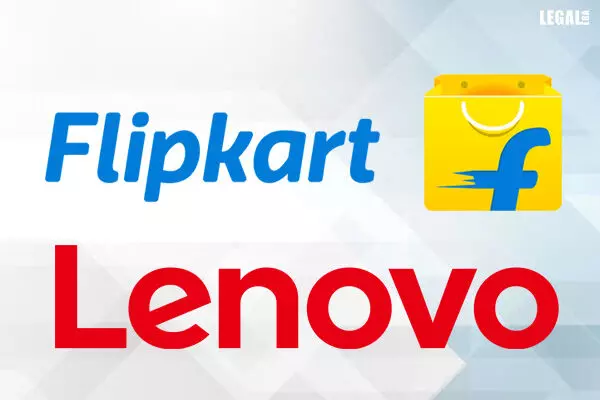- Home
- News
- Articles+
- Aerospace
- AI
- Agriculture
- Alternate Dispute Resolution
- Arbitration & Mediation
- Banking and Finance
- Bankruptcy
- Book Review
- Bribery & Corruption
- Commercial Litigation
- Competition Law
- Conference Reports
- Consumer Products
- Contract
- Corporate Governance
- Corporate Law
- Covid-19
- Cryptocurrency
- Cybersecurity
- Data Protection
- Defence
- Digital Economy
- E-commerce
- Employment Law
- Energy and Natural Resources
- Entertainment and Sports Law
- Environmental Law
- ESG
- FDI
- Food and Beverage
- Gaming
- Health Care
- IBC Diaries
- In Focus
- Inclusion & Diversity
- Insurance Law
- Intellectual Property
- International Law
- IP & Tech Era
- Know the Law
- Labour Laws
- Law & Policy and Regulation
- Litigation
- Litigation Funding
- Manufacturing
- Mergers & Acquisitions
- NFTs
- Privacy
- Private Equity
- Project Finance
- Real Estate
- Risk and Compliance
- Student Corner
- Take On Board
- Tax
- Technology Media and Telecom
- Tributes
- Viewpoint
- Zoom In
- Law Firms
- In-House
- Rankings
- E-Magazine
- Legal Era TV
- Events
- News
- Articles
- Aerospace
- AI
- Agriculture
- Alternate Dispute Resolution
- Arbitration & Mediation
- Banking and Finance
- Bankruptcy
- Book Review
- Bribery & Corruption
- Commercial Litigation
- Competition Law
- Conference Reports
- Consumer Products
- Contract
- Corporate Governance
- Corporate Law
- Covid-19
- Cryptocurrency
- Cybersecurity
- Data Protection
- Defence
- Digital Economy
- E-commerce
- Employment Law
- Energy and Natural Resources
- Entertainment and Sports Law
- Environmental Law
- ESG
- FDI
- Food and Beverage
- Gaming
- Health Care
- IBC Diaries
- In Focus
- Inclusion & Diversity
- Insurance Law
- Intellectual Property
- International Law
- IP & Tech Era
- Know the Law
- Labour Laws
- Law & Policy and Regulation
- Litigation
- Litigation Funding
- Manufacturing
- Mergers & Acquisitions
- NFTs
- Privacy
- Private Equity
- Project Finance
- Real Estate
- Risk and Compliance
- Student Corner
- Take On Board
- Tax
- Technology Media and Telecom
- Tributes
- Viewpoint
- Zoom In
- Law Firms
- In-House
- Rankings
- E-Magazine
- Legal Era TV
- Events
Consumer Court Ruling Expands Liability of Online Platforms for Defective Goods

Consumer Court Ruling Expands Liability of Online Platforms for Defective Goods
In a recent ruling by the North-East Delhi District Consumer Disputes Redressal Commission bench of Surinder Kumar Sharma (President) and Anil Kumar Bamba (Member), intermediaries like Flipkart and Amazon were held to have a responsibility to ensure the quality of products sold on their platforms. The commission also found that agents and intermediaries must uphold the quality of goods sold through their platforms and can be held liable for defects or losses incurred by consumers.
Vipin Bharti purchased a Lenovo phone from Flipkart on July 17, 2017. The phone had severe network coverage issues from the start. Bharti complained to Flipkart multiple times, and engineers were sent to assess the problem. The engineers confirmed the issue, and Bharti received a replacement phone. However, the replacement phone also had the same problem. Bharti escalated the matter to Flipkart, who advised him to visit the Lenovo service centre. Despite several visits to the service centre, the issue was not resolved. Bharti also reached out to Lenovo directly, but the problem persisted. Frustrated, Bharti filed a consumer complaint with the North-East Delhi District Consumer Disputes Redressal Commission (District Commission).
Flipkart argued that it is not a seller of products, but rather an online marketplace that connects buyers and third-party sellers. It claimed that any warranties, guarantees, or after-sales support are the responsibility of the individual sellers, not Flipkart. Flipkart further asserted that it is not directly responsible for the complainant's grievance and does not have a contractual relationship with him.
The District Commission conducted a thorough review of the case, taking into account the roles and responsibilities of online intermediaries. Specifically, it examined the case of Amazon Seller Services Pvt. Ltd. Vs. Gopal Krishan, First Appeal No.27 of 2017, in which the National Consumer Dispute Redressal Commission (NCDRC) established that online platforms such as Amazon, even when acting as intermediaries, are obligated to ensure the quality of products offered on their platform. The District Commission emphasised that intermediaries acting as agents must ensure the quality of products and can be held responsible for any losses incurred by buyers due to product defects within their platform.
Furthermore, the District Commission referenced the case of Amazon Seller Services Pvt. Ltd. Vs. Dinesh & Ors., First Appeal No. 21 of 2018, where the NCDRC reaffirmed that online platforms, despite their intermediary status, carry a responsibility for the quality of products sold through their platform. In line with these relevant legal precedents, the District Commission concluded that intermediaries like Flipkart must uphold product quality standards within their platforms. It underscored that agents of intermediaries bear the responsibility of ensuring the quality of goods sold through their platforms and may be held accountable for any defects or losses experienced by purchasers.
As a result, the District Commission ruled in favour of the complainant and ordered Lenovo and Flipkart to refund the complainant ₹9,999, the cost of the mobile phone, along with 6% annual interest from the date of filing the complaint until payment is made. Both companies were also ordered to jointly and severally compensate the complainant ₹15,000 for mental distress and ₹5,000 for legal fees.


